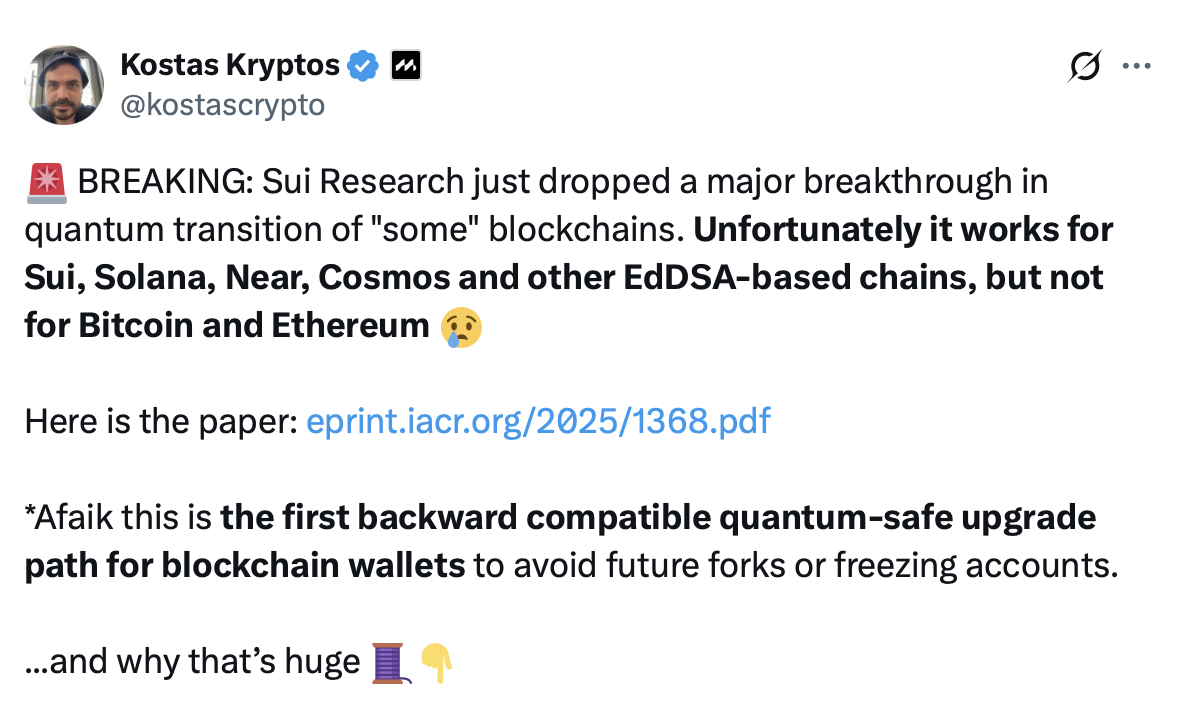VC Amit Mehra: Quantum Computing Won’t Threaten Bitcoin for Years

- Quantum computing, though still in early development, could threaten blockchain encryption within the next decade.
- Experts emphasize the urgency for the crypto industry to adopt quantum-resistant security measures sooner rather than later.
- Recent innovations include cryptographic frameworks aimed at protecting certain blockchains from quantum threats, excluding Bitcoin and Ethereum.
- The U.S. government is actively considering investments in quantum technology to bolster national security amid geopolitical competition.
Although still in its infancy, quantum computing could soon challenge the foundational security of Bitcoin and other proof-of-work cryptocurrencies, according to industry insiders. Amit Mehra, a partner at Borderless Capital, highlighted the ongoing exploration into quantum resistance technology during the recent Global Blockchain Congress Dubai 2025. He noted that while commercial quantum computing may take until the end of the decade to mature fully, experts tend to underestimate the pace of technological progress.
Quantum computers exploit principles of quantum physics to process data exponentially faster than classical machines. This capability, if realized at scale, could break the encryption that safeguards cryptocurrencies and sensitive data, prompting development of new post-quantum security standards. The threat has sparked urgency across the sector, with some industry leaders warning that prompt action is necessary.
Charles Edwards, founder of the Carpriole digital asset fund, expressed a more urgent stance, warning that the industry must find solutions in the next year to prevent significant losses. On X, he declared, “If Bitcoin doesn’t solve Quantum in the next year, gold will outperform it forever,” underscoring the potential consequences of inaction.
Source: Charles EdwardsIn response to the looming threat, SUI Research unveiled a new cryptographic framework designed to enhance blockchain security against quantum attacks—all without requiring hard forks, address changes, or key resets. Although promising for networks like Near, Solana, and Cosmos, this solution does not yet address the vulnerabilities of Bitcoin or Ethereum, the most widely used cryptocurrencies.
 Sources: KostasCrypto
Sources: KostasCrypto
Meanwhile, the U.S. government is seriously considering investing in quantum computing technologies to protect national interests. A Bloomberg report indicated that the U.S. Department of Commerce might allocate funds to accelerate quantum advancements, helping to maintain a competitive edge against China in this strategic sector.
As the race for quantum supremacy accelerates, the cryptocurrency community must prioritize resilience and innovation. The development of quantum-proof cryptographic standards is not just a technical challenge but a necessity for ensuring the long-term security and integrity of blockchain-based assets.
This article was originally published as VC Amit Mehra: Quantum Computing Won’t Threaten Bitcoin for Years on Crypto Breaking News – your trusted source for crypto news, Bitcoin news, and blockchain updates.
You May Also Like
Trump Coin Prints Caps, WIF Does Drip, La Culex Prints Bags as Best Crypto to Buy Now

Ex-CEO of Defunct Crypto Exchange Thodex Found Dead in Prison
